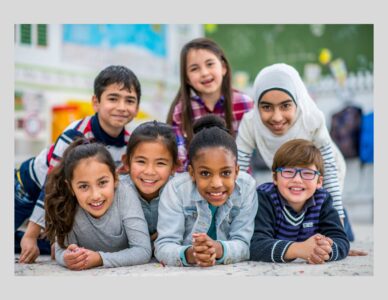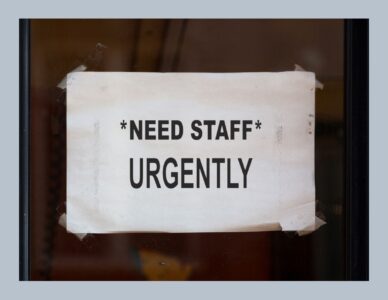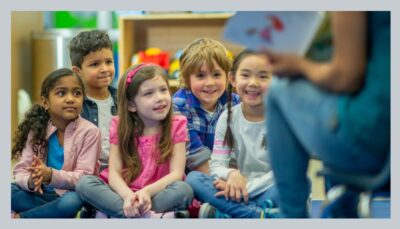The Institute for Public Education/ BC has called on the federal government to place an urgent priority on the implementation of a national, universal school food program in the upcoming budget. In a brief submitted to the federal pre-budget consultation, we speak to the importance of such a program in helping to address food insecurity and poverty throughout the country. Additionally, we explain the positive impact of a universal program on student learning, well-being, health and development, and the educational opportunities it would provide for all school-aged children and youth. Read the full brief submitted to the 2024 budget consultation here.
News
Thank you very much to the CCPA for the January 11th Policy Note on IPE/BC’s Hopes and Dreams project and for inviting readers to participate. We know there are many significant problems that need addressing in our public schools- teacher shortage, inadequate support for students with diverse learning needs, and underfunding, to name a few. At the same time, we think that it’s important to talk about our aspirations for our education system, students and learning in BC and to help inform policy through the voices of British Columbians. What are your hopes and dreams for public education in BC? Check out the links in this article to join in the conversation.
IPE/BC’s community engagement project, Hopes and Dreams for Public Education in BC, was featured on Radio CFRO, Vancouver’s Cooperative Radio, on December 16th. Bárbara Silva, IPE/BC Board member, spoke with Jane Williams on Redeye about the project and the ways that IPE/BC is reaching out to British Columbians and inviting them to share their perspectives. Thank you very much to Coop Radio for this interview and for inviting listeners to participate.
We hope you’ll take a few minutes to listen to the segment (scroll down to December 16th) and, of course, we also hope you’ll join with others in BC and participate by sending in your thoughts.
On September 30th and throughout the year, we commit to learning, reflecting, and teaching about the genocidal treatment of Indigenous Peoples in Canada, and to taking meaningful steps to reconciliation. We know that the education is key to exposing the brutal inhumane treatment of Indigenous children, families, and peoples across the country and to ensuring every child is treated with respect and given the support and encouragement they deserve. Indigenous children need to see their culture, history, and ways of knowing embraced in our public school system, and to know that they are truly welcomed, and their strengths are celebrated. It is up to all of us in the education community to ensure this is the case.
We applaud the steps taken to date in our public schools and, at the same time, know that there is much more to do. As Justice Sinclair so aptly said, “Education got us into this mess and education will get us out.”
National Truth and Reconciliation Day is an opportune time to re-read the TRC Calls to Action, and to individually and collectively make plans to ensure they are implemented. Decolonizing our work, our daily lives and our education system is a critical imperative- one which we all owe to the children and youth in our schools and communities. The message, “Every child matters” calls upon us to ensure this is truly the case for Indigenous children. Fortunately, there are many excellent resources to help us do the necessary learning and to act on our commitments. Just a few of the many available are included below. We know there are many more excellent resources for acting on reconciliation in our schools and communities and would welcome you sharing those with us.
National Centre for Truth and Reconciliation -Truth and Reconciliation Week
4 Canoes – Indigenous Created Resources for the Classroom
Spirit Bear’s Guide to the Truth and Reconciliation Commission of Canada Calls to Action
Featured Resources in Aboriginal Education
Never Stop Learning- Truth and Reconciliation and Education Resources
Perspectives is an opportunity for Fellows and others to share their ideas in short, accessible essays. IPE/BC Fellows hold a range of views and interests relative to public education.
The Community School Model- Just Imagine!
By David Chudnovsky
August 29, 2023
Imagine a small elementary school in a low income suburban community. The teachers are a mix of veterans and younger folks. It’s a really tough job as many of the students come to school hungry and have difficult home lives, but the teachers are enthusiastic and committed. Several of them have been teaching there for almost 30 years. They’ve all thought of looking for easier placements, but they can’t bring themselves to leave these kids.
 There’s an evening program for adults – with courses in everything from belly dancing to introductory business skills to gymnastics – and there’s a ceramics studio with a kiln and slip and glazes that’s used by the kids during the day and adults at night.
There’s an evening program for adults – with courses in everything from belly dancing to introductory business skills to gymnastics – and there’s a ceramics studio with a kiln and slip and glazes that’s used by the kids during the day and adults at night.
Students work with a community curriculum developed by the teachers that reflects the experience of residents and neighbours.
Adult Basic Education classes are taught in a couple of empty classrooms during the day and in the kids’ classrooms in the evening – from basic literacy for people who can’t read or write to high school equivalency GED prep sessions. For more than 30 hours a week dozens of adults share the school with the elementary students.
A group of neighbourhood women meet in the school to organize a childcare centre and it’s just about to open in the community centre down the street.
A Community Newspaper is published four times a year through the school.
There’s a seniors group that meets monthly and organizes outings, and also arranges for older neighbours to volunteer in classrooms and interact with the elementary students.
 In a portable in the parking lot behind the school is a re-entry program for teenagers who’ve been out of school for at least 6 months. The school recruits those students through local social service agencies, high school counselors and the media.
In a portable in the parking lot behind the school is a re-entry program for teenagers who’ve been out of school for at least 6 months. The school recruits those students through local social service agencies, high school counselors and the media.
During the summer, a day camp runs using the school building and its facilities.
There’s a lunch program. Volunteers from the neighbourhood come into the school to make sandwiches or hot dogs – but it’s hard to get the money to make the program permanent.
There’s a community program run out of the school called Shape Up. A couple of the Shape Up staff will help you renovate your house, clean out your garage, landscape your backyard or do any one of hundreds of home improvement projects that keep getting put off. But residents have to contribute. Some help with the actual work of the project at their home. Some store the tools. Some make lunch and dinner for the workers. One guy sharpens and repairs the tools.
There’s an annual fundraising fair at the school, but it has to be scheduled for social assistance cheque week. If it isn’t, there’s no money to raise. But when it is, the whole neighbourhood participates, they have a great time, and some funds are raised to support the programs.
The School Board employs a teacher to organize and facilitate all of this, plus a night school monitor (paid for out of the fees for the night school courses), and a part time secretary. However, the real leadership is provided by a Community Board made up of neighbourhood folks  who advise and decide on the various programs, advertise, and explain what’s going on at the school to their neighbours, and advocate to the School Board and other governments and agencies for the various programs and activities at the school. Some of them are parents of kids at the school. Some of them aren’t.
who advise and decide on the various programs, advertise, and explain what’s going on at the school to their neighbours, and advocate to the School Board and other governments and agencies for the various programs and activities at the school. Some of them are parents of kids at the school. Some of them aren’t.
Sound good? A bit too good to be true? Pie in the sky? Not at all. That program – with a lot more elements – existed and flourished in a North Surrey neighbourhood for decades. I was lucky enough to be the Community School Coordinator – the teacher hired by the Board to run the Community School Program for close to ten years, and while it was a hard job, it was enormously exciting.
Neighbourhoods with Community Schools knew, and still know, that they are certainly cost effective, but more important, they build cooperation, educational and social success, and resilience.
The Community School model – with different characteristics in communities with different needs – came to an end in Surrey in the late 1980’s as a result of yet another budget crisis. But it still exists in some jurisdictions.
What a wonderful experience – using school resources and space to meet community needs. Those elementary school students learned so much from the range of people who themselves benefited from the school’s programs. The kids learned they were part of a community. They learned they could build and strengthen their neighborhood. They learned that seniors, and adults learning to read and write, and the fellow who lived down the street and sharpened tools, were all important parts of their lives. They learned what it means to be a citizen.
While you’re thinking about what was, imagine what could be. What if we added a Community Health Clinic and a Social Services Office to that Community School? What if the School Board meetings were held in each Community School once a year? What if the local First Nations were part of and the programs at the School?
What if School Boards and the Province really understood the value of schools as part of the wider community, understood schools as the building blocks of stronger and more resilient communities? Imagine a renaissance of Community Schools across BC.
Just imagine.
David Chudnovsky worked in nursery, elementary and secondary schools and at the university level in England, Ontario and BC during his 35-year teaching career. He is a past-president of the British Columbia Teachers’ Federation and was an elected Member of the Legislative Assembly in British Columbia Legislature from 2005-2009. David is co-author of the Charter for Public Education.
The IPE/BC submission to the Budget 2024 Consultation process is titled, Building Capacity for BC’s Future, and is focused on the following three priorities:
- addressing the serious teacher shortage that is putting the quality of public education at risk,
- acting on the need to revise the system for capital planning and building in order to ensure a forward-looking approach, and
- meeting the need for increased funding for post-secondary education.
You can read the full submission including our recommendations and rationale here.
June 8, 2023
We know that a high quality, accessible and inclusive public education system is essential to a strong democracy. We also know that teachers’ working conditions are students’ learning conditions. A recent report shines a light on the serious issues that need to be addressed so that our valuable public education system can continue to live up to the important role it plays in our society.
As you’ll see from this report on the BCTF’s recent member survey, the pressures on teachers are becoming untenable. We can only expect that BC’s critical teacher shortage will get worse if the conditions are not improved. Increasing workload, inability to secure the support their students need, staffing shortages, and oversized classes are among the top factors having a worrying impact on the physical and mental health of teachers. Teachers considering leaving the profession within the next two years pointed to inadequate working conditions, lack of support for students with diverse needs, stress, and burnout as key reasons. They identified not being able to get the necessary support for students who need it as the key impact of the staffing shortages.
It’s well worth taking the time to read the full report. As you’ll see, the situation calls for immediate, concerted government attention.
Perspectives is an opportunity for Fellows and others to share their ideas in short, accessible essays. IPE/BC Fellows hold a range of views and interests relative to public education.
Attention to Staffing Shortages Urgently Needed
June 3, 2023
By Larry Kuehn
Teachers are frontline workers in the creation of the future. A teacher shortage is a hazard in developing that future and we are facing a teacher shortage in BC public schools.
 The early warning indicators are already here. Community members without teacher qualifications are placed in some classrooms. A lack of teachers on call are available to fill in behind teachers away because of illness. Staff lose their planning time as they are pulled in to cover thousands of classes without their regular faculty member. Students with disabilities are sent home, deprived of their right to education because their specialist teachers are required to cover classes for missing colleagues.
The early warning indicators are already here. Community members without teacher qualifications are placed in some classrooms. A lack of teachers on call are available to fill in behind teachers away because of illness. Staff lose their planning time as they are pulled in to cover thousands of classes without their regular faculty member. Students with disabilities are sent home, deprived of their right to education because their specialist teachers are required to cover classes for missing colleagues.
Demand for teachers will only increase with a growing population and expanding expectations of the schools. The problems are already here and will explode into a crisis unless we act now. We need both immediate action and long-term planning and commitments.
How did we create this dilemma? It sometimes helps to look at how a problem starts to see how to get out of it.
A reduced demand for teachers in early years of the 21st Century gave a false sense of the real need. School enrolments did decline for a few years. More significantly, the BC Liberal government in 2002 cut about 3000 teachers, eliminating by legislation staffing provisions in the teachers’ collective agreement. This contract stripping created a sudden teacher “surplus.”
This left a pool of qualified teachers as precarious workers. Part-time, moving from one school to another, being laid off every year, hoping to find a position for the next term. Even those with full-time positions worked for lower pay scales than teachers in most other provinces. Not surprisingly, some gave teaching up as a career while others who might have become educators looked elsewhere than teacher education.
The situation changed just as suddenly in 2016. The Supreme Court of Canada affirmed a lower court decision that the government in 2002 had violated the Charter rights of teachers in arbitrarily cancelling conditions that had been negotiated by the BC Teachers’ Federation. The class size and other staffing provisions were restored, returning education services that students had been deprived of.
With some 3000 teaching positions restored, all those precarious workers now had job offers—and there were not enough to fill the demand, let alone prepare for future needs.
The teacher shortage might have already received significant public attention except that it has had to compete with another crisis—the shortage of people in the health care system, as well as other areas crying about the need for workers.
 The BC government has recognized these other demands and has provided funding for increased training positions in health care, technology, and trades. However, education has been an afterthought, if a thought at all.
The BC government has recognized these other demands and has provided funding for increased training positions in health care, technology, and trades. However, education has been an afterthought, if a thought at all.
What can be done to address this teacher shortage?
In the short term, we can look to the same place as is health care—immigrants who have been trained and, in some cases, have experience in the countries they have come from. This does not mean going to recruit elsewhere—that has its own shortages—but people who have already immigrated, often with their education and training being a major factor in why they were accepted as immigrants. When they arrived, they discovered that their qualifications aren’t accepted and there is a long and expensive road to getting recognized. Reducing the red tape would help a bit and some progress is being made in that.
The longer term solution is clear—train more teachers and make the job more attractive to retain those who join the profession.
Some progress in making the profession more attractive has been made with the pay increases recently negotiated by the BCTF. Many of the problems, though, will not be solved until there are enough teachers so that everyone can count on a replacement by a qualified substitute when they are away ill. They will not be solved until we stop grabbing the special needs teacher away from their students or the librarian from the library to cover the classroom teacher who is away. And the teacher shortage will not be over until every student has a qualified teacher—not someone with no training–meeting their educational needs.
 It is past time for the government to recognize that public education, like health care, requires urgent attention to staffing shortages.
It is past time for the government to recognize that public education, like health care, requires urgent attention to staffing shortages.
To meet current demands, and to be prepared for increased demands for teachers in the future, the BC government must place a priority on increasing the number of places in universities for teacher education candidates. And it must provide financial support so that future teachers don’t have to add on to student debt in order to make their contributions as front-line workers in the creation of the future.
Larry Kuehn is a member of the IPE/BC Board of Directors and chair of the Research and Programs Committee. He is a research associate for the CCPA and retired BCTF Director of Research and Technology. He has written extensively on education matters including funding, globalization, technology and privacy.
Perspectives is an opportunity for Fellows and others to share their ideas in short, accessible essays. IPE/BC Fellows hold a range of views and interests relative to public education.
Stretched to the Limit
April 25, 2023
By Moira Mackenzie
Public education is not broken; funding is.
This message was woven through the presentations and discussion at the recent IPE/BC forum, Stretched to the Limit” with each of the featured speakers putting the pressures on K-12 and post-secondary education into perspective. The forum featured:
- Annabree Fairweather, Executive Director, CUFA BC,
- Tracy Humphries, Executive Director, BCEdAccess, and
- Andree Gacoin, Director of Information, Research, and International Solidarity, BCTF.
While the speakers spoke from very different vantage points, they all underscored the urgent need for a well-supported, accessible, and inclusive education system at all levels
Annabree began by talking about the provincial government’s current post-secondary funding model review which has as its objectives a fair and impartial funding model, alignment with education and skills training needs, and the expansion of supports to students to ensure success. In the government’s own words, the current model has created constraints and inequities, a perspective with which Annabree wholeheartedly agreed. Further, she explained the unnecessarily convoluted and overly complex set of legislation and regulations that govern the post-secondary system in BC which, when coupled with chronic underfunding, leads the institutions to compete for very limited resources.
It certainly was concerning to hear that the share of GDP directed to post-secondary education in BC is less than that in all other provinces in Canada except Ontario. Additionally, much of the funding that does come in has specific strings attached and those strings do not necessarily match the core academic mission. Moreover, there has also been an increasing reliance on private funding, with a corresponding decline of nearly ten percent in government grants between 2006 and 2020. Annabree shone the light on the fact that this decline has led to risky decisions to seek varied sources of private dollars, which in turn has deprioritized the academic mission in favour of sponsored research. Additionally, it has fed the phenomenon of a burgeoning administration rather than a much needed increase in faculty to keep pace with the growth in student enrollment. Further, Annabree pointed out the folly in relying on revenue from international students to bolster budgets, as was made abundantly clear when the COVID pandemic diminished that revenue stream.
decline of nearly ten percent in government grants between 2006 and 2020. Annabree shone the light on the fact that this decline has led to risky decisions to seek varied sources of private dollars, which in turn has deprioritized the academic mission in favour of sponsored research. Additionally, it has fed the phenomenon of a burgeoning administration rather than a much needed increase in faculty to keep pace with the growth in student enrollment. Further, Annabree pointed out the folly in relying on revenue from international students to bolster budgets, as was made abundantly clear when the COVID pandemic diminished that revenue stream.
As part of the funding review, CUFA-BC has published Funding for Success: Post Secondary Education in BC, an excellent series of briefs outlining the problems and proposing solutions. Despite the significant challenges, Annabree expressed a hope that the funding review and the lessons learned during the pandemic, including the importance of a stable, well funded post-secondary system, will help to bring about much needed change. She also stressed the importance of developing strong alliances between the K-12 and the post-secondary sectors, and wisdom of well funded and well supported education at all levels and for all students.
Andrée began her presentation by referencing the work of Sam Abrams, Director of the National Center for the Study of Privatization in Education at Columbia University. The prevailing conditions for privatization that he identified are at play in BC today, including the impossible expectation that public schools continue to do more and more with less and less, the commercial mindset in managing public education, the bureaucratic pathologies, and the cultivated message that there is a crisis in education independent of the impact of chronic underfunding.
While successive governments in BC have frequently claimed funding is at the highest level ever, the fact is that the percentage of GDP spent  on public education has been in significant decline. In 2001, BC allocated 2.8% to public schools while by 2021, it had reached an all-time low of 1.7%. Had the percentage even just remained steady throughout this period, there would have been an additional $2 billion more in school board budgets. Excessive cost-cutting, as Andree stated, is baked into the current structure of the funding model. We see this at play in yet another round of budget preparation this spring as numerous school boards are considering cuts once again, a reality that was simply not addressed in the provincial budget tabled and touted by the province in February.
on public education has been in significant decline. In 2001, BC allocated 2.8% to public schools while by 2021, it had reached an all-time low of 1.7%. Had the percentage even just remained steady throughout this period, there would have been an additional $2 billion more in school board budgets. Excessive cost-cutting, as Andree stated, is baked into the current structure of the funding model. We see this at play in yet another round of budget preparation this spring as numerous school boards are considering cuts once again, a reality that was simply not addressed in the provincial budget tabled and touted by the province in February.
Andree reported that the BCTF recently surveyed its members-the public school teachers and associated professionals in BC. A staggering 40% of respondents said they’d leave teaching in the next two years, citing exhaustion and burnout attributed to the absence of supports, the overcrowding in classes and lack of meaningful in-service. Teachers also spoke about the health and safety issues they face and the impact of so many impossible challenges on their mental health.
Of particular note, Andrée stressed, is the fact that the government’s commitment to inclusive education has yet to be matched with the requisite funding. Boards of Education have had to spend more on special education than they receive from the province and the austerity pressures have led to rationing of special education services and an inadequate level of specialist support. What’s urgently needed is a funding model that addresses the diverse needs of students, schools and school districts along with a funding paradigm based in a strong collective vision of what public education should be. Returning to the issue of privatization, Andrée was clear- we can’t separate the funding crisis from privatization trends, trends that will only serve to undermine our valued public school system.
Tracy spoke further about the support required to meet students’ complex learning needs. She was very clear that the current lack of adequate support leads to exclusion not inclusion. She has direct experience with the issues and, in her role with BCEdAccess, has spoken to many parents who feel their kids are not welcome in public schools. Due to underfunding and lack of appropriate supports, many students are being excluded from public schools and the full and appropriate range of learning experiences that should be available to them. BCEdAccess has been tracking incidents of exclusions and now has four years of data to illustrate the impact on students and their families, including the finding that students with multiple marginalized identities are much more likely to be excluded. Linking back to the issue of underfunding, Tracy shared that the exclusions are also more likely to happen when unmanageable conditions, lack of support and burnout prevail. None-the-less, she stated emphatically, “Our kids have a right to quality, inclusive public education.”
adequate support leads to exclusion not inclusion. She has direct experience with the issues and, in her role with BCEdAccess, has spoken to many parents who feel their kids are not welcome in public schools. Due to underfunding and lack of appropriate supports, many students are being excluded from public schools and the full and appropriate range of learning experiences that should be available to them. BCEdAccess has been tracking incidents of exclusions and now has four years of data to illustrate the impact on students and their families, including the finding that students with multiple marginalized identities are much more likely to be excluded. Linking back to the issue of underfunding, Tracy shared that the exclusions are also more likely to happen when unmanageable conditions, lack of support and burnout prevail. None-the-less, she stated emphatically, “Our kids have a right to quality, inclusive public education.”
Additionally, Tracy reminded the forum participants of the changes to the special education category designations made by the provincial government in 2001 and never rectified. These changes resulted in the removal of supplementary funding to support the many students with identified high incidence needs. While the number of designations then dropped markedly and the supports diminished, the students’ special or diverse learning needs did not, of course, leaving many educators unsure of how to best support these students and without the appropriate means to do so.
Tracy was clear about the steps that need to be taken. The government needs to urgently address funding levels and support for all students and our public schools. She stressed that there should be a more holistic approach and coherent links between pre-school, K-12, and post-secondary education. We need to amplify the message that a quality, accessible and inclusive public education system is of great worth to our society as a whole. It should be valued and supported independent of the needs of the marketplace. “There are kids for whom a job may never be a possibility,” said Tracy, “but that does not mean that education is not valuable to them, and that the system does not gain value from having them there.”
Annabree, Andrée and Tracy clearly struck a chord with everyone in attendance as the discussions continued well after adjournment. IPE/BC is very grateful to each of them for their thoughtful and informative presentations and for fueling a renewed commitment to supporting our public schools.

Moira Mackenzie is a member of the Board of IPE/BC and long time advocate for quality, accessible, inclusive public education. She taught in BC public schools for many years at the primary and intermediate levels, and as a Resource & Learning Assistance teacher. Moira, who is now retired, also served in a number of elected and appointed roles within the teachers’ federation.
New School Monies Mostly to Cover Current Cost Pressures
By John Malcolmson, Institute for Public Education/BC
March 1, 2023
Tuesday’s budget announces a significant increase in funding for K-12 schools. On the operating side of the ledger, there appears to be in excess of $625 million in additional money, according to the Education Ministry’s Service Plan document.
Before the champagne corks start popping, it is worthwhile to keep a few salient (and sobering) thoughts in mind.
➢ Current year funding for public schools is in the order of $6,330 million, so the above scale of increase is clearly sizeable and in the vicinity of 10 per cent.
➢ Our schools are highly labour intensive. In 2022/23, about $4,528 million was spent on wages and salaries for teachers, support staff, and administrative staff. Benefit costs that vary directly with wage spending are likely to add in another $830 million in costs, so the cost of maintaining the staff that run our schools comes to about $5,362 million. These workers are in line to receive a 6.75% increase in April, so that will absorb a full $362 million in new funding.
➢ School enrolments are slated to rise by 1.4%. If one assumes a direct scaling in system costs to meet the needs of these new students, that will take up another $89 million.
➢ Expected inflation on non-wage costs in our schools – close to a $1 billion annually – will absorb another $58 million.
➢ The newly-enhanced school food program is projected to cost an additional $59 million in 2023/24.
If you tally up the underlined amounts above, you get about $568 million already committed. That leaves just $60 odd million to deal with costs associated with new initiatives or the Classroom Enhancement Fund to hire new teachers, or the Learning Improvement Funding dedicated to building up Education Assistant time with students with special needs. Not insubstantial of course but a far cry less than what the headlines alone suggest.